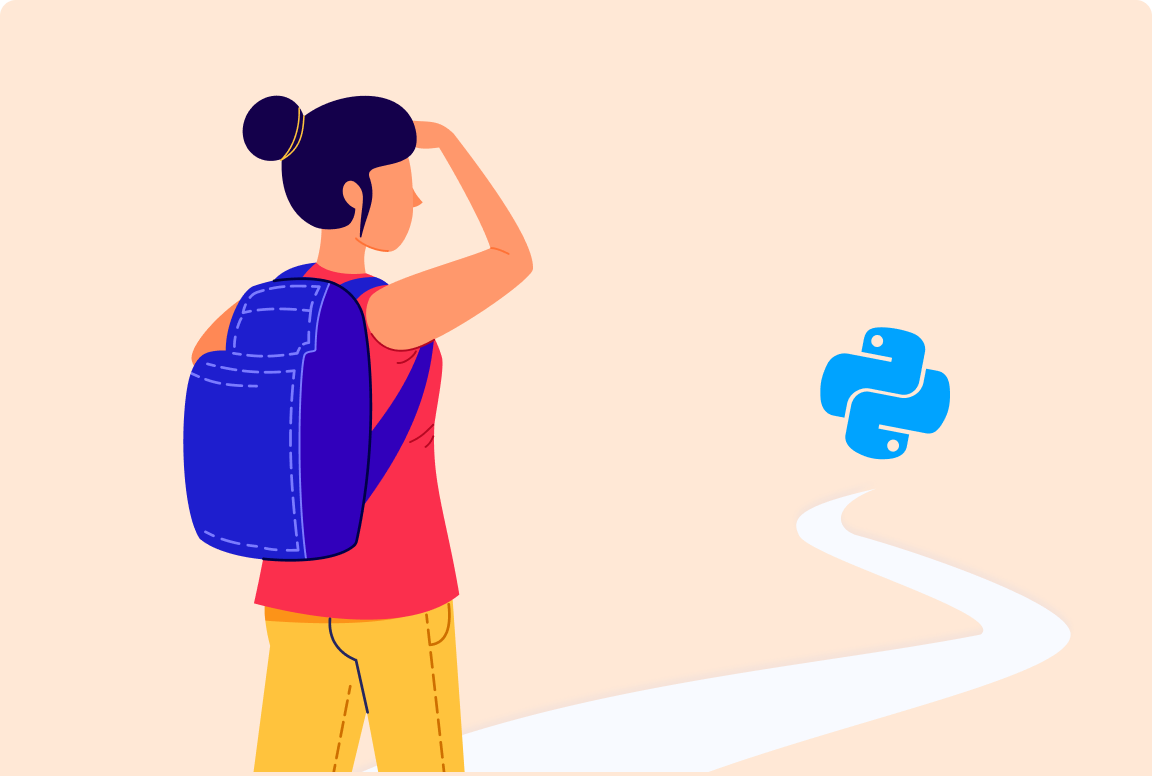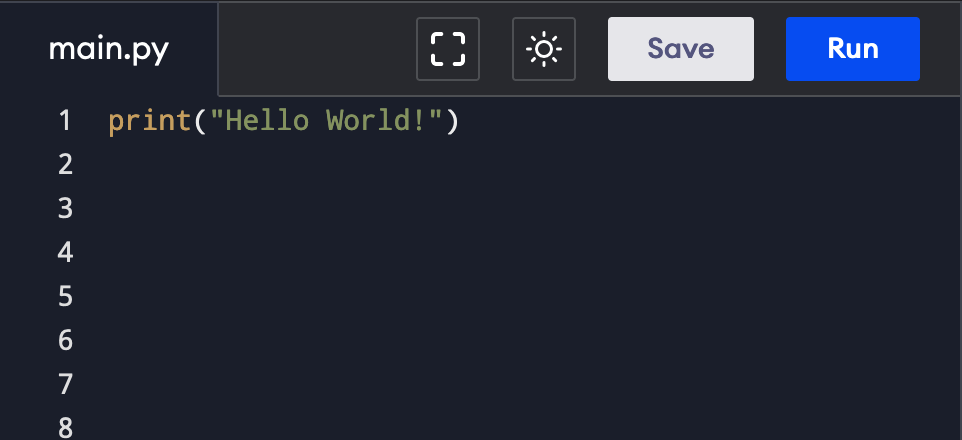Python is one of the top programming languages in the world, widely used in fields such as AI, machine learning, data science, and web development.
The simple and English-like syntax of Python makes it a go-to language for beginners who want to get into coding quickly.
Because Python is used in multiple fields, there is a high demand for Python developers, with competitive base salaries.
In this guide, we will cover:
If you are simply looking to learn Python step-by-step, you can follow our free tutorials in the next section.
Beginner's Guide to Python
These tutorials will provide you with a solid foundation in Python and prepare you for your career goals.
Is Python for you?
Whether Python is the right choice depends on what you want to accomplish and your career goals.
Python from Learning Perspective
If you are new to programming and prefer simplicity, Python is probably the right choice for you.
Let's see an example.
main.py
x = 5
y = 10
print(x + y)
main.c
#include <stdio.h>
int main() {
int x = 5, y = 10;
printf("%d", x + y);
return 0;
}
Here, both programs in C and Python perform the same task. However, the Python code is much easier to understand, even if you have never been a programmer before.
That being said, there are some advantages to learning languages like C as your first language. For example, C is much closer to the hardware and allows you to work with computer memory directly, thus providing you with a deeper understanding of how your code actually works.
On the other hand, Python's clear, English-like syntax allows you to concentrate on problem-solving and building logic without being concerned about unnecessary complexities.
So, it's up to you whether you want to quickly get started with programming or really take your time to understand the nitty-gritty parts of programming.
Python as a Career Choice
Python is a widely used programming language for creating real-world applications. It is extensively used in:
- Data Science
- Artificial Intelligence
- Automation
- Testing
- Backend Development
Thus, learning Python offers significant advantages for your career opportunities.
However, there are certain fields where Python doesn't excel. For example, if you are interested in frontend development, game development, or mobile app development, then Python is not the best choice.
In these cases, alternatives such as JavaScript for frontend development, Kotlin, Swift, or Dart for mobile app development, and C++ for game development will be more suitable.
Therefore, your career choices can guide you in selecting which programming language to learn.
Best Way to Learn Python
There is no right or wrong way to learn Python. It all depends on your learning style and pace.
In this section, we have included the best Python learning resources tailored to your learning preferences, be it text-based, video-based, or interactive courses.
Text-based Tutorial
Best: if you are committed to learning Python but do not want to spend on it
If you want to learn Python for free with a well-organized, step-by-step tutorial, you can use our free Python tutorials.
Our tutorials will guide you through Python one step at a time, using practical examples to strengthen your foundation.
Interactive Course
Best: if you want hands-on learning, get your progress tracked, and maintain a learning streak
Learning to code is tough. It requires dedication and consistency, and you need to write tons of code yourself.
While videos and tutorials provide you with a step-by-step guide, they lack hands-on experience and structure.
Recognizing all these challenges, Programiz offers a premium Learn Python Course that allows you to gain hands-on learning experience by solving challenges, building real-world projects, and tracking your progress.
Online Video
Best: if you are an audio-visual learner and learn by watching others code and following along
If you're more of a visual learner, we have created a comprehensive Python course for beginners that will guide you on your Python journey.
Additionally, there's a popular Python playlist by Corey Schafer available on YouTube to further guide you on your Python journey.
If you're looking for a structured university course at zero cost, visit Python Course - University of Helsinki.
Mobile App
Best: if you are a casual and hobby learner who wants to learn Python on the go
While it's possible to learn Python from mobile apps, it's not the ideal way because writing code can be challenging. Additionally, it's difficult to build real-world projects with multiple files on mobile devices.
Nevertheless, you can use these apps to try things out.
Important: You cannot learn to code without developing the habit of writing code yourself. Therefore, whatever method you choose, always write code.
While writing code, you will encounter errors. Don't worry about them, try to understand them and find solutions. Remember, programming is all about solving problems, and errors are part of the process.
How to Run Python?
1. Run Python in your browser.
We have created an online editor to run Python directly in your browser. You don't have to go through a tedious installation process. It's completely free, and you can start coding directly.
2. Install Python on Your computer.
Once you start writing complex programs and creating projects, you should definitely install Python on your computer. This is especially necessary when you are working with projects that involve multiple files and folders.
To install Python on your device, you can use this guide.

Getting Started with Python
Learn how you can install and use Python on your own computer.
Learn more